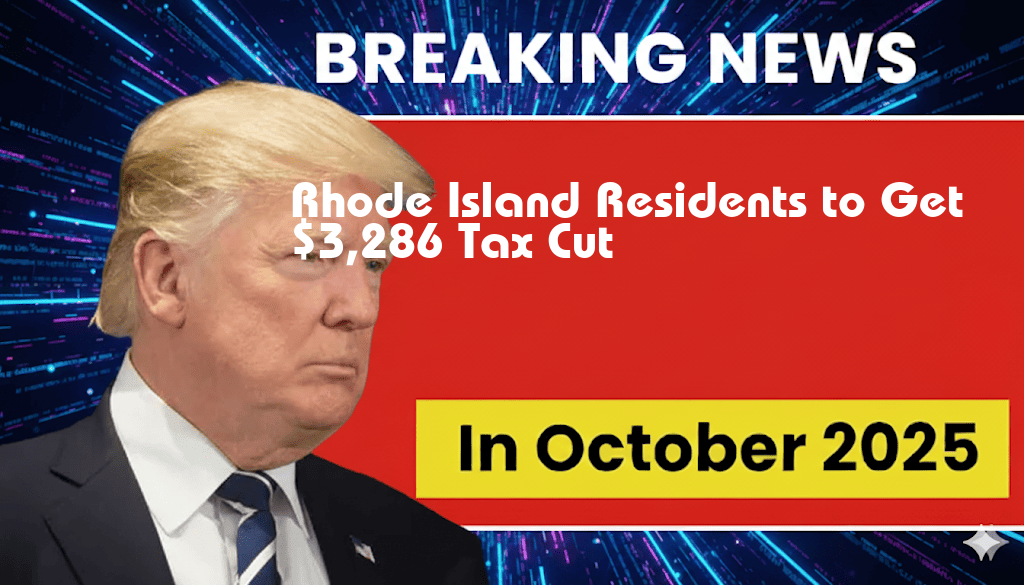Rhode Island residents are set to benefit from a significant tax cut, with the average household expected to receive a reduction of $3,286 in their tax bills. This change comes as part of a broader initiative aimed at easing financial burdens on families and stimulating the local economy. The tax cut is part of Governor Dan McKee’s proposed budget for the next fiscal year, which aims to address rising costs and provide relief to residents affected by inflation. The proposal has garnered attention from both supporters and critics, sparking discussions about fiscal responsibility and the implications for the state budget.
Details of the Tax Cut Initiative
The tax cut plan is designed to provide immediate financial relief to households across Rhode Island. Key components of the proposal include:
- Increased income tax deductions: The initiative proposes to increase the standard deduction for individuals and married couples.
- Lowering the tax rate: The plan includes a reduction in the state income tax rate for certain income brackets.
- Expanded tax credits: Enhanced tax credits for families with children and low-income residents are also part of the proposal.
Impact on Households
According to state officials, the average Rhode Island household will see a notable decrease in their overall tax liability. This reduction is expected to benefit a diverse demographic, including middle-class families and low-income individuals. The tax savings can provide much-needed relief to residents facing higher costs of living, particularly in areas such as housing, food, and energy.
Economic Implications
The anticipated tax cut is viewed by some as a way to stimulate economic growth within the state. By increasing disposable income, residents are likely to spend more on local goods and services, potentially bolstering the Rhode Island economy. Economists suggest that this could lead to job creation and increased revenue for local businesses.
Political Reactions
The governor’s proposal has elicited a range of responses from lawmakers and community leaders. Supporters argue that the tax cut is a necessary step towards making Rhode Island more affordable, especially for working families. They believe it will help retain residents who might otherwise consider relocating to states with lower tax burdens.
Conversely, critics express concerns about the long-term sustainability of such tax cuts, warning that they could strain the state budget and lead to cuts in essential services. They argue that while immediate relief is beneficial, the state must balance tax cuts with the need for adequate funding in education, healthcare, and infrastructure.
Public Opinion
Recent polls indicate that many Rhode Island residents are in favor of the tax cut proposal, viewing it as a positive response to ongoing economic challenges. A survey conducted by the Rhode Island Public Expenditure Council found that a majority of respondents support measures that provide financial relief, particularly for families with children.
Next Steps and Implementation
As the proposal moves through the legislative process, state lawmakers will hold hearings to discuss its implications and gather public feedback. If approved, the tax cuts are expected to take effect in the next fiscal year, providing timely relief for residents filing their taxes in 2024.
Conclusion
As Rhode Island navigates the complexities of tax policy, the anticipated $3,286 tax cut represents a significant shift in the state’s approach to economic support for its residents. With ongoing discussions about fiscal responsibility and economic growth, the outcome of this proposal could have lasting effects on the state’s financial landscape.
| Household Type | Average Tax Cut |
|---|---|
| Single Individuals | $2,000 |
| Married Couples | $4,500 |
| Families with Children | $3,500 |
For more information on Rhode Island’s tax policies, visit the Rhode Island Department of Revenue or consult the Forbes website for insights into economic trends.
Frequently Asked Questions
What is the amount of the tax cut that Rhode Island residents are expected to receive?
Rhode Island residents are expected to receive a tax cut of $3,286.
Who will benefit from the tax cut in Rhode Island?
The tax cut will benefit eligible residents of Rhode Island, particularly those who meet specific income and filing requirements.
When can residents expect to see the tax cut reflected in their finances?
The tax cut is anticipated to be implemented in the next fiscal year, although exact dates may vary based on legislative approval.
What is the reason behind the tax cut for Rhode Island residents?
The tax cut is part of a broader initiative to provide financial relief to residents and stimulate the local economy.
Are there any eligibility requirements for receiving the tax cut?
Yes, eligibility requirements may include factors such as income level, filing status, and residency in Rhode Island.

Leave a Reply